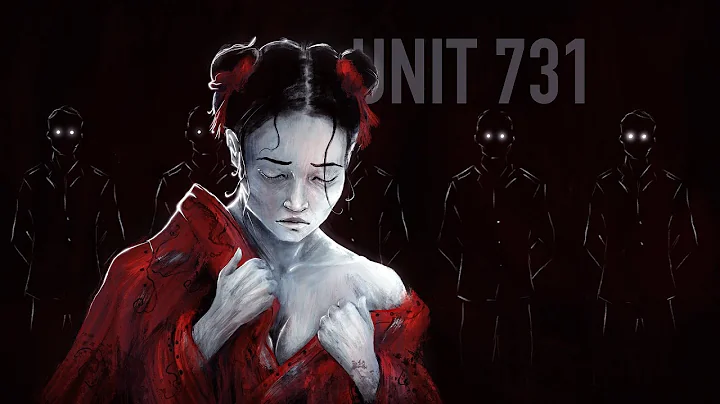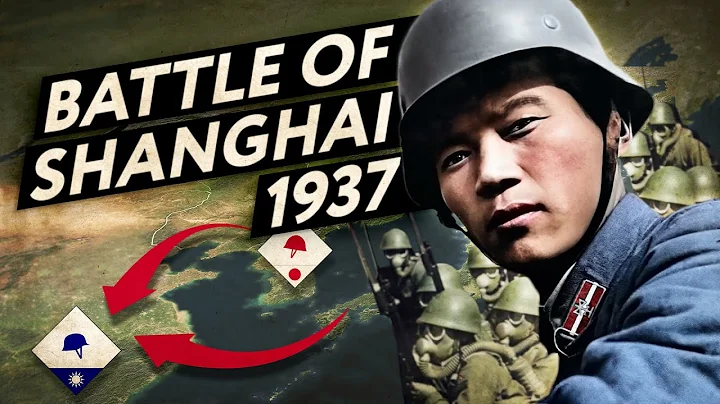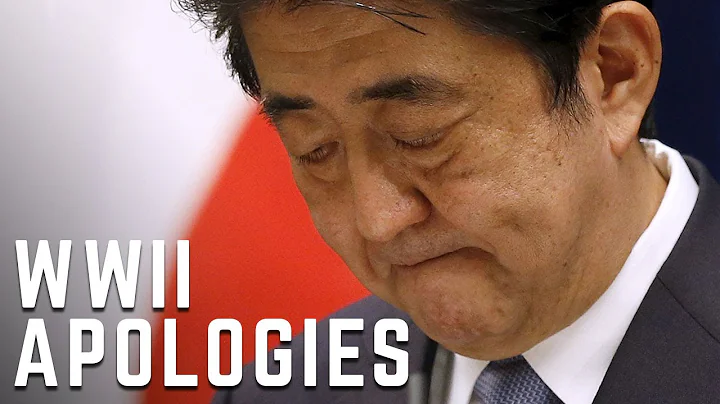
After having many negotiations with Gu Zhutong and Zhang Chong in Xi'an, Zhou Enlai flew to Shanghai at the end of May.
In Shanghai and Nanjing, Zhou Enlai was busy contacting people from all walks of life to strive for the public and legal status of the CCP, planning and preparing publications to promote anti-Japanese resistance, and also met with some secret party members.
html On June 4, Zhou Enlai arrived in Lushan, but he did not meet Chiang Kai-shek until June 8. After many talks, Chiang Kai-shek's attitude changed drastically. Originally, he proposed that the CCP discuss a program, but now that the program was presented, he put it aside and put forward another idea of establishing a "National Revolutionary Alliance." This alliance was composed of a number of cadres from the Kuomintang appointed by Chiang Kai-shek, and an equal number of people from the Communist Party. Chiang Kai-shek was the chairman and had the final say. The external actions and propaganda of the two parties will be discussed and decided by the alliance meeting and then implemented. Regarding program issues, they will also be discussed by the alliance. If the Alliance proceeds smoothly, it can be expanded into a party formed by the Kuomintang and the Communist Party in the future, and it can also have relations with the third international on behalf of the communist party. Chiang Kai-shek's true intention was to dissolve the Communist Party into the Kuomintang.Chiang Kai-shek had many promises when he was in Hangzhou, and this meeting also changed. For example, he originally agreed to set up a general headquarters above the three divisions, but this time he only agreed to "set up a political training office to command it" and unreasonably proposed: "Mr. Zhu and Mr. Mao go abroad." Armed forces in various regions must also be "organized and their leaders must leave." The open issue of the Communist Party is no longer raised, but it is stipulated that when the representatives of the Communist Party of China participate in the National Assembly, they "will not attend in the name of the Communist Party." Zhou Enlai was mentally prepared for the change in Chiang Kai-shek's attitude. He said that organizing the Revolutionary League was of great importance. The Central Committee of the Communist Party of China must be consulted before the decision can be made. It cannot be agreed that political training offices should be set up above the three divisions. It is unreasonable to ask Zhu and Mao to go abroad. After repeated consultations with Song Ziwen, Song Meiling, and Zhang Chong, the matter still cannot be resolved.
html On June 18, Zhou Enlai returned to Yan'an . The Secretariat of the Central Committee of the Communist Party of China studied Chiang Kai-shek's plan and decided that for the sake of the overall situation, further concessions could be made. In principle, it agreed to organize the National Revolutionary League, but it must first determine the common program and then recognize it. Chiang Kai-shek had the final say according to the Common Programme. Preparing to issue a declaration in mid-July, if Chiang Kai-shek agrees to establish a general military command, the Red Army will be reorganized in his name, otherwise the reorganization will be announced on August 1. Strive to make Zhu De the reorganized commander of the Red Army, recommend Zhang Ji, Song Ziwen, Yu Youren to choose one of the three to be the chief executive of the special zone, and Lin Boqu to be the deputy chief. This new plan is a plan that accommodates Chiang Kai-shek's requirements and compromises. Zhou Enlai called Chiang Kai-shek on the 22nd, emphasizing that if there is no command structure above the three divisions, reorganization cannot be carried out. Zhu De cannot leave the army. At the same time, he called Gu Zhutong, Zhang Chong and others, stating that Zhu De's stay would have a great impact. Please advise Chiang Kai-shek that Zhu De cannot leave. Chiang Kai-shek did not agree to these demands.Due to Chiang Kai-shek's capriciousness, this negotiation reached a deadlock.
html On June 26, Nanjing sent a telegram inviting Zhou Enlai to continue negotiations. The Central Committee of the Communist Party of China decided that Zhou Enlai would not go to Lushan again until the cooperation declaration between the Kuomintang and the Communist Party was drafted. html On July 4, Zhou Enlai, with this declaration, arrived in Xi'an together with Bo Gu and Lin Boqu, and arrived in Shanghai on the 7th. On this night, the Marco Polo Bridge Incident, which shocked China and the world, broke out. The Chinese army bravely resisted the Japanese invasion, and the great Anti-Japanese War began. The next day, the Central Committee of the Communist Party of China electrified the whole country, calling on compatriots, the government and the army to "unite to build a solid Great Wall of national united front to resist the Japanese invaders."A comprehensive war of resistance is imperative, and the struggle will be long-term. We have A lot of work to do. In Shanghai, Zhou Enlai, Bogu, and Lin Boqu met with Pan Hannian, who was in charge of liaison work, and Liu Xiao, who was about to serve as Secretary of the Jiangsu Provincial Party Committee, and pointed out that the situation had changed dramatically, and unexpected events would happen in Shanghai and Peking, and we should mentally respond Be prepared. We should seize the opportunity of the all-out war of resistance, mobilize the masses, organize the masses, and do a good job in the united front work of the upper class progressives based on the cultural circle. Mass work must be carried out steadily, combining open work with secret work, paying attention to accumulating revolutionary power, and opposing both closed-doorism and adventurism.These instructions from Zhou Enlai played an important guiding role in the recovery and development of Shanghai's underground party work, which had been severely damaged.
In Shanghai, Zhou Enlai also instructed Xia Yan to do more united front work as a progressive cultural person. The working methods can be diverse, but they must strive to be open and legal. We must strive to open a newspaper in the Kuomintang-controlled areas. Together with Bo Gu and Lin Boqu, he visited Soong Ching Ling and asked for Song's opinions on the "Declaration of the Central Committee of the Communist Party of China on the Cooperation between the Kuomintang and the Communist Party." Song Qingling expressed support.
In order to make progress in this negotiation, on July 9, Peng Dehuai, He Long, Liu Bocheng, Lin Biao, Xu Xiangqian, Ye Jianying, Zuo Quan, Xiao Ke, Xu Haidong gave Lin Sen, Chiang Kai-shek, Wang Jingwei, etc. in Lushan and the national military and political officials. Send a message: "At the critical juncture of North China's survival crisis, I respectfully appeal to our National Government to quickly mobilize the army to reinforce Hebei, so as not to let the loyal and brave 29th Army be trapped in fighting alone. The Red Army is willing to change its name to the National Revolutionary Army immediately, and requests to be ordered to fight against Japan. Pioneer, fight to the death with the Japanese invaders. "
html On July 13 (or 14), Zhou Enlai, Bo Gu, and Lin Boqu arrived at Lushan. Immediately submitted the "Declaration of the Central Committee of the Communist Party of China on Cooperation between the Kuomintang and the Communist Party" to Chiang Kai-shek. On the 14th, the Central Committee of the Communist Party of China sent a message to the Nanjing government stating that it was willing to work hard to resist the war under the command of Chiang Kai-shek. The Red Army was ready to mobilize at any time to resist Japan. It had ordered all armies to prepare within ten days and assume the anti-Japanese tasks on the -Pingsui Line..Chiang Kai-shek responded with a cold attitude. At that time, Chiang Kai-shek and Wang Jingwei were inviting people from all walks of life to hold talks in Lushan, asking them to express their opinions on state affairs, but representatives of the Communist Party of China were excluded.
html On October 14, Zhou Enlai met with Zhang Chong. It turned out that Chiang Kai-shek had promised that the political organs of the three divisions could assume command, but Zhang Chong told Zhou Enlai: "Chairman Chiang insists that each division must be directly under the camp, and the political organs are only responsible for liaison and have no power to command." Taking a big step back. The next day, Zhou Enlai had no choice but to write a letter to Chiang Kai-shek, pointing out that "this is very different from what he heard last time in Lu and what he told the comrades in the party when he returned to Shaanxi. It is not only difficult to get things done, but also makes him repeatedly break his promise." For comrades in the party, it may hinder the progress of future events. "Zhou Enlai had hinted to Chiang Kai-shek that if he goes back on his word, it may be difficult to continue the negotiations.It was not until the 17th that Zhou Enlai, Bo Gu, and Lin Boqu held negotiations with Chiang Kai-shek, Shao Lizi, and Zhang Chong. Zhou Enlai suggested to Chiang Kai-shek that the "Declaration of the Central Committee of the Communist Party of China on Cooperation between the Kuomintang and the Communist Party" should be the political basis for cooperation between the Kuomintang and the Communist Party. During the negotiations, a heated argument took place. The focus of the dispute is the command and personnel issues of the Red Army's reorganization. Chiang Kai-shek's attitude did not change, so the negotiations did not resolve the issue. On the 18th, Zhou Enlai wrote down twelve issues that needed to be determined urgently and handed them to Chiang Kai-shek through Soong Meiling. The main contents include: Promise all newspapers to publish the "Central Committee of the Communist Party of China to publish the Declaration on Cooperation between the Kuomintang and the Communist Party", and the Central Committee of the Kuomintang issued a written statement expressing its approval; quickly publish the name and person in charge of the Shaanxi-Gansu-Ningxia Border Region Government; both the Kuomintang and the Communist Party sent personnel to the southern Soviet area to communicate and communicate The Kuomintang and the Communist Party cooperated on the policy and adapted the Red Army guerrillas; the "Liberation
" weekly published by the CCP in Yan'an was allowed to be distributed nationwide. html On the 17th, Zhang Wentian and Mao Zedong called Zhou Enlai, Bo Gu, and Lin Boqu, pointing out: From the perspective of the overall situation, during the negotiations, the reorganized command organization of the Red Army can recognize the establishment of a political department to command in peacetime, with Zhu De as the chief director and Peng Dehuai as the deputy director. However, in wartime, it is necessary to establish a military headquarters to provide leadership. This content is also included in Article 12. Chiang Kai-shek still insisted that there would be no unified command organization after the reorganization of the Red Army. The three divisions would be directly under the imperial palace. The chiefs of staff of the three divisions would be dispatched from Nanjing. The political director could only convey personnel and command. Zhou Enlai could be the director and Mao Zedong could be the deputy director. Zhou Enlai solemnly stated that he could not accept Chiang Kai-shek's opinions. This negotiation remains fruitless.The Chinese Communist Party has reached a point where it can no longer make concessions. At that time, the Japanese aggressor army was invading North China on a large scale, and the officers and soldiers of the 29th Army resisted heroically. The people of North China and even the whole of China advocated resolute resistance and opposed wavering compromise. Many National Revolutionary Army generals and local Kuomintang party headquarters openly called for resistance. The Nanjing government also expressed a tough attitude and mobilized troops to reinforce Hebei, Shanxi, Suiyuan.On the 17th, Chiang Kai-shek had no choice but to give a speech in Lushan, saying: "If the war breaks out, the land will be divided into north and south, regardless of age, no matter who is young or old, everyone has the responsibility to defend the land and resist the war, and everyone should be determined to sacrifice everything." All-out war of resistance has become an unstoppable trend. Zhang Wentian and Mao Zedong reported on the 20th that Zhou Enlai and Lin Boqu pointed out: "The situation of the Japanese attack has been completed, and the war of resistance is possible. We are determined to adopt the policy of not giving in or negotiating with Chiang Kai-shek." So Zhou Enlai returned to Shanghai to observe the changes in the situation. . On the 21st, Zhou Enlai, Bogu, and Lin Boqu called Zhu De, Peng Dehuai and other Red Army generals, suggesting that no matter how the situation changes, they must "immediately reorganize the unified organization of three front armies and six units, with each front army having a strength of 15,000 people, and independently All armies and divisions were incorporated to strengthen cadres so that all front armies could work independently. "
html On the 26th, Zhou Enlai, Bogu, and Lin Boqu returned to Xi'an and telegraphed the details of the Lushan negotiations. Although the three of them had gone through intense negotiations and the fatigue of the journey, they were still full of energy, so I took the opportunity to take a group photo of them.




















